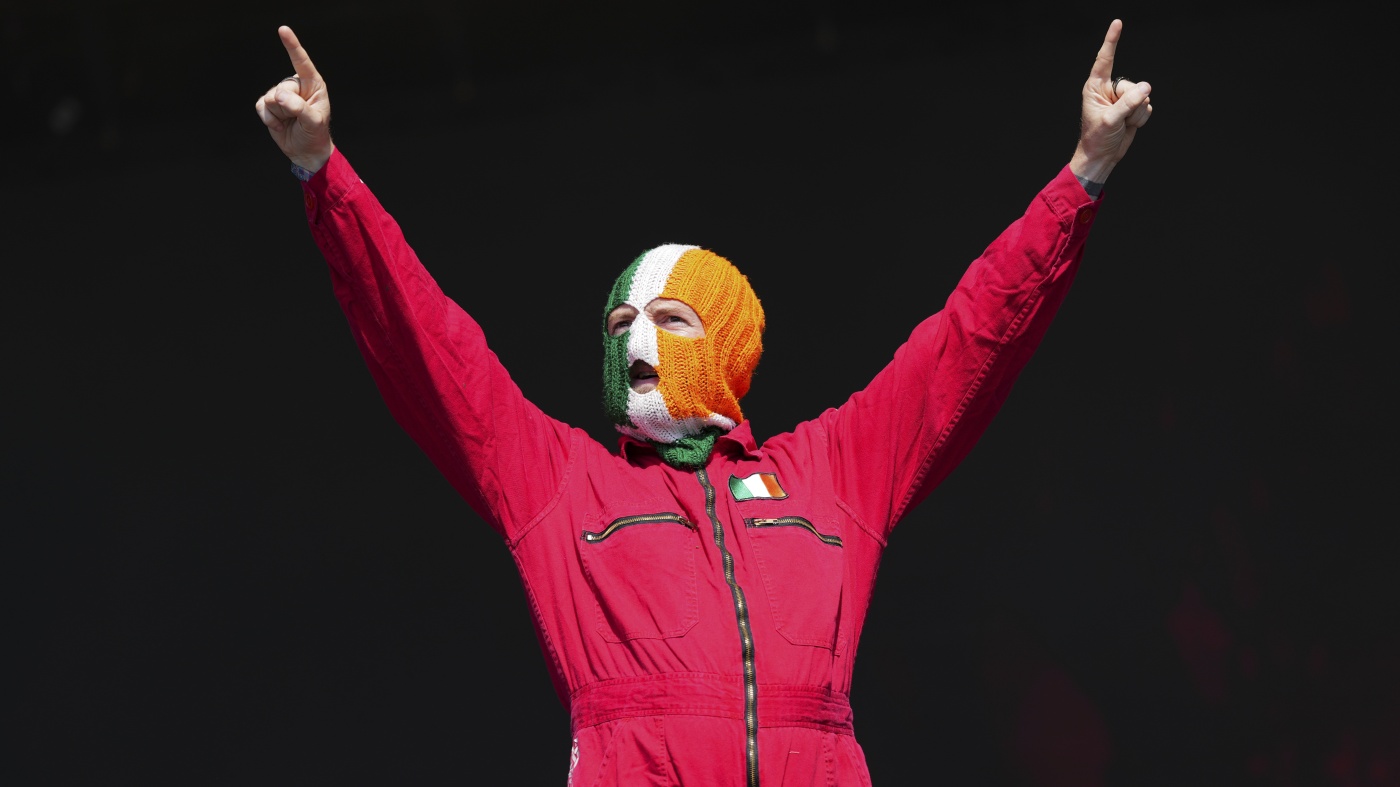The recent performance of the Northern Irish rap group Kneecap at the Glastonbury Festival has sparked significant discussion and controversy, drawing attention not only to their musical talent but also to the political and cultural statements embedded in their work. Despite facing criticism from British politicians and controversy surrounding their lyrical content and symbolism, Kneecap’s appearance at one of the world’s most renowned music festivals marked a critical moment for Irish-language music and the expression of Northern Irish cultural identity.
Kneecap’s Unique Position in Irish-Language Music
Kneecap stands out as a pioneering force in the Irish-language music scene, particularly in the hip-hop genre—a field historically dominated by English-language artists. The trio, hailing from West Belfast and Derry, brought to Glastonbury a vibrant, anarchic energy, mingled with satirical lyrics that challenge conventional narratives. Their choice to rap primarily in Irish not only contributes to the preservation and revitalization of the language but also asserts its relevance in contemporary cultural expressions.
Their music conveys a blend of youthful defiance, local pride, and political commentary. Through clever symbolism and coded references associated with the Irish republican movement, Kneecap highlights the ongoing complexities and tensions in Northern Ireland. Their work resonates strongly with younger generations who navigate the legacy of conflict but want to forge a new cultural identity that embraces their heritage unapologetically.
The Political Backdrop and Controversy
Kneecap’s association with Irish republican symbolism, which is linked historically to a struggle for uniting Northern Ireland with the Republic of Ireland, inevitably attracts scrutiny and polarized opinions. Northern Ireland’s troubled history, marked by decades of sectarian violence where over 3,600 lives were lost amidst clashes involving republican and loyalist groups, still shapes contemporary political and social discourse.
British politicians, including Prime Minister Keir Starmer, voiced criticism over the band’s inclusion at Glastonbury, citing concerns related to the potential glorification of militancy and the political messages in their lyrics. The controversy intensified against the backdrop of recent terror allegations involving one member of the group, although the music and performance themselves remained the focal point during the festival.
The calls for banning Kneecap from Glastonbury reveal the continuing unresolved tensions surrounding expressions of Irish republicanism in mainstream events. However, the decision by the festival organizers to proceed reflects a broader trend towards inclusivity of diverse and even contentious voices within the arts, underscoring the complex role of music as both entertainment and political expression.
Resonance with Audiences and Cultural Significance
Despite the controversy, Kneecap’s performance at Glastonbury drew tens of thousands of attendees and was met with enthusiasm and appreciation. The crowd’s warm reception demonstrates an increasing appetite for music that challenges the status quo and offers insight into the lived experiences of Northern Irish youth.
Beyond entertainment, Kneecap’s music serves as a vehicle for cultural revival, particularly in championing the Irish language’s contemporary relevance. Their rapid-fire delivery, evocative storytelling, and blending of traditional narratives with modern beats create a unique space where historical memory and current realities intersect.
Moreover, the choice of Glastonbury, a global platform with a diverse and international audience, amplifies the group’s message far beyond Northern Ireland. It invites listeners worldwide to engage with issues of identity, language, and unresolved political conflicts from a new perspective, framed through the lens of creative expression.
Media and Broadcast Reception
The potential streaming of Kneecap’s Glastonbury set by the BBC signals further recognition of the group’s impact and the public interest surrounding their performance. Media coverage has been intense and often polarized, reflecting the wider debates about free speech, artistic expression, and political sensitivity in the arts.
The coverage has highlighted the role of hip-hop as a powerful medium for marginalized voices and its capacity to challenge dominant narratives. Kneecap’s presence at one of the largest music festivals globally represents a milestone for Irish-language hip-hop, which until recently was largely underrepresented.
Conclusion: A Defiant and Symbolic Moment in Music and Culture
Kneecap’s Glastonbury performance stands as a defining episode, not merely for their career but for the cultural and political dialogue it embodies. The blend of artistic innovation, linguistic pride, and controversial symbolism encapsulates the complex realities of Northern Ireland’s past and present.
Their ability to command a prominent stage despite criticism underscores the transformative power of music to confront difficult histories and inspire new conversations. Whether one views them as provocateurs or cultural ambassadors, Kneecap undeniably symbolizes a dynamic and evolving cultural identity—one that embraces both heritage and modern rebellion.
As Kneecap continues to challenge boundaries and engage with socio-political themes through Irish-language rap, their work will likely remain a potent touchstone for discussions about identity, conflict, and expression in Northern Ireland and beyond. Their Glastonbury set was more than just a concert; it was a statement of presence, resistance, and hope for a new generation seeking to define itself on their own terms.











